第9章
Next, then, we must distinguish between the classes of predicates in which the four orders in question are found. These are ten in number: Essence, Quantity, Quality, Relation, Place, Time, Position, State, Activity, Passivity. For the accident and genus and property and definition of anything will always be in one of these categories: for all the propositions found through these signify either something's essence or its quality or quantity or some one of the other types of predicate. It is clear, too, on the face of it that the man who signifies something's essence signifies sometimes a substance, sometimes a quality, sometimes some one of the other types of predicate. For when man is set before him and he says that what is set there is 'a man' or 'an animal', he states its essence and signifies a substance; but when a white colour is set before him and he says that what is set there is 'white' or is 'a colour', he states its essence and signifies a quality. Likewise, also, if a magnitude of a cubit be set before him and he says that what is set there is a magnitude of a cubit, he will be describing its essence and signifying a quantity. Likewise, also, in the other cases: for each of these kinds of predicate, if either it be asserted of itself, or its genus be asserted of it, signifies an essence: if, on the other hand, one kind of predicate is asserted of another kind, it does not signify an essence, but a quantity or a quality or one of the other kinds of predicate. Such, then, and so many, are the subjects on which arguments take place, and the materials with which they start. How we are to acquire them, and by what means we are to become well supplied with them, falls next to be told.